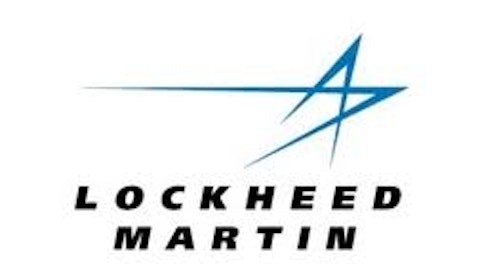In April 2007, The Boeing Company (NYSE:BA) won a defense contract to supply Taiwan with 30 AH-64E Apache Longbow attack helicopters. On Aug. 8, Boeing was awarded a $92 million modification for that deal. So far, the sale has a cumulative face value of almost $717 million, while a Congressional research report estimates that the total value is around $2.53 billion.
Clearly, this is great news for The Boeing Company (NYSE:BA), but it’s not ideal for U.S. relations with China, and that could affect future weapons sales. Here’s why.

Photo: Peter Davies, via Wikimedia Commons.
The battle over Taiwan and reunification
In 1979. the U.S. switched diplomatic recognition from Taiwan to China, to counter mounting Soviet threats. Today, the U.S. continues to supply arms to Taiwan under the Taiwan Relations Act, or TRA, that was also passed in 1979, and guarantees the sale of defense weapons to Taiwan — much to China’s frustration, as it wants Taiwan to agree to reunification.
In 1995, the People’s Liberation Army in China, or PLA, directed “provocative exercises and missile test-firings” at Taiwan, in what’s become known as that Taiwan Strait Crisis. Since that time, the U.S. has upped its “assertiveness” of the TRA, which states that the U.S. “will make available to Taiwan such defense articles and defense services in such quantity as may be necessary to enable Taiwan to maintain a sufficient self-defense capability.”
This is obviously a bone of contention between the U.S. and China, with the U.S. stating that it views any action that forces reunification on Taiwan with “grave concern,” and China responding by saying that Taiwan is the “most crucial and most sensitive issue” between China and the United States.
China’s not happy, but Boeing is
When the pending helicopter sale was first announced in 2008, China reacted by cancelling a number of military exchanges with the United States. Following the Obama Administration’s confirmation of the sale in 2010, the PLA threatened economic retaliation against the companies involved in the arms deal. It also pushed the Chinese government to sell U.S. bonds. However, despite China’s protests, the sale has gone through, and The Boeing Company (NYSE:BA) expects to deliver the first six Apaches in October, with the remaining 24 slated for delivery before next July. This sale, while not ideal for relations with China, is also great news for Lockheed Martin Corporation (NYSE:LMT) and Northrop Grumman Corporation (NYSE:NOC), which, through a joint venture, manufacture the Longbow system on the Apache.
What to watch
Between 2004 and 2007, with $4.3 billion in sales and services, Taiwan was the fourth largest customer for U.S. arms sales. In 2011, Taiwan dropped to eighth place, with $800 million in delivered sales, but for agreed sales it ranked sixth. Clearly, U.S. arms sales to Taiwan have been significant and have definitely had a positive impact on defense contractors’ bottom lines. However, China is becoming increasingly unhappy about the United States’ involvement with Taiwan and has pressed the U.S. to end foreign arms sales to the island.
So far, the U.S. has refused, and that has escalated tensions between the U.S. and China — especially because Taiwan has said that the weapons it’s buying are for defense against China, even though relations between Taiwan and China have improved.
Whether or not the U.S. will heed China’s threats remains unseen, but as it could have a large impact on profits from foreign arms sales, this is something to monitor.
The article 30 Boeing Attack Helicopters Headed for Taiwan originally appeared on Fool.com and is written by Katie Spence.
Fool contributor Katie Spence owns shares of Northrop Grumman. Follow her on Twitter: @TMFKSpence. The Motley Fool owns shares of Lockheed Martin and Northrop Grumman.
Copyright © 1995 – 2013 The Motley Fool, LLC. All rights reserved. The Motley Fool has a disclosure policy.




